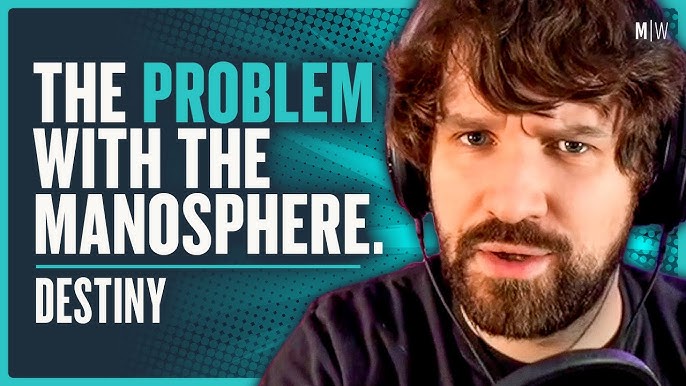Social Media In-Depth - What Boys Are Watching Online and Why It Matters
At Raritan Neighbors NJ, along with local stories— In this new series, we’ll take a closer look at the social media trends, influencers, and online subcultures.
This week's story is the rise of the “manosphere”—a digital space where young men and even boys are drawn into conversations about masculinity, success, sex and relationships, often influenced by viral YouTubers and podcast hosts. These spaces often reference the “red pill” vs. “blue pill” ideology—borrowed from The Matrix but redefined online. Taking the "red pill," in this context, means "waking up" to a harsh truth about gender dynamics and society (usually in a way that blames women or modern values), while the "blue pill" represents staying naïve or accepting mainstream views.
As these ideas grow in popularity, especially on platforms like YouTube , Discord, and TikTok, it’s more important than ever to understand what kids might be watching and the messages they're absorbing and how to respond in a healthy way to their interests.
Although some videos may be tongue in cheek or offer simple commentary, beneath the surface of brotherhood and advice, there are serious concerns about how this content is shaping the minds of young boys and men.

What Is the Manosphere?
The term manosphere describes a network of blogs, forums, and YouTube channels that focus on men’s issues. It includes communities like:
-
Men’s rights activists (MRAs)
-
Pick-up artists (PUAs)
-
"Alpha male" influencers
-
Involuntary celibates (incels)
-
Self-improvement and fitness gurus
While some creators genuinely offer helpful advice on confidence, career building, or fitness, others drift into dangerous territory—pushing misogyny, conspiracy theories, and grievance politics. Discord, in the context of the manosphere, is often used as a private or semi-private chat platform where followers of certain influencers or ideologies gather to share ideas, memes, frustrations, and sometimes, extreme views—free from public scrutiny.
Discord is a popular chat app originally designed for gamers, but it's now widely used by all kinds of online communities—including those in the manosphere. Think of it as a mix between a group chat and a message board, with channels dedicated to specific topics like dating advice, fitness, mental health, or “how to be alpha.”
In the manosphere, Discord servers often act as echo chambers. They allow young men and boys to connect directly with like-minded individuals and influencers in a space that feels exclusive and unfiltered.
The servers are private or invite-only, so they can become incubators for radicalization, especially among lonely, impressionable teens who feel misunderstood or disconnected in the real world.
Parents and educators often don’t know these communities exist—there are no algorithms, no public comments to monitor, so conversations can be rapid and extreme among adults and teens.

What Are Boys Watching?
Young male viewers, particularly teens, are increasingly consuming videos from:
-
Andrew Tate – Former kickboxer turned social media personality, known for mixing self-help advice with inflammatory, sexist commentary.
-
Fresh & Fit Podcast – Targets young men with "dating strategy" discussions often rooted in shaming women.
-
Sneako – A controversial content creator who transitioned from lifestyle commentary to far-right talking points.
-
Jordan Peterson – A Canadian psychologist whose lectures on responsibility and order attract millions, though some critics say his ideology can fuel culture war extremism.
-
Hamza – A “self-improvement” YouTuber who appeals to teen boys with messages about escaping video games and becoming an "Adonis."
YouTube’s algorithm favors content that provokes reactions, meaning that once a boy watches one video about “how to be alpha,” he’s likely to be served more extreme videos in the same vein.
Why Is It So Popular?
There’s a void being filled.
Professionals comment that in a world where boys are often told what not to do—but rarely what healthy masculinity is—the manosphere provides them with a blueprint, even if it’s flawed. It offers:
-
A sense of belonging
-
Clear rules and identity
-
An outlet for frustration or confusion
-
An illusion of control in dating and power dynamics
Many boys and even men feel lost in discussions of gender equality, where they’re not sure where they fit. Some manosphere content exploits this confusion, turning it into resentment—especially toward women, or “the matrix or system.”
The Dangers of the Manosphere
While not all manosphere content is dangerous, here’s where it can cross the line:
-
Promoting misogyny – Women are often dehumanized or blamed for societal problems.
-
Encouraging radicalization – Some influencers steer boys toward extremist ideologies under the guise of empowerment.
-
Glorifying toxic behaviors – Aggression, dominance, and emotional suppression are often framed as "strength."
-
Mental health risks – These communities rarely encourage therapy or emotional intelligence; instead, they frame vulnerability as weakness.
Some schools and parents are already seeing the results. Teachers report students quoting controversial influencers in class. Boys as young as 11 are repeating phrases like “high-value man” or “women only like bad guys,” absorbed from binge-watching certain YouTubers.
Questions to Ask Your Teen About What They Watch Online
A Parent's Guide to Understanding the Manosphere and YouTube Influence
-
“What YouTubers or podcasts do you watch regularly?”
(Ask with curiosity, not judgment—this opens the door.) -
“What do you like about their content?”
(Listen for themes like motivation, humor, advice, or identity.) -
“Do you think everything they say is true or fair?”
(Encourages critical thinking without directly criticizing.) -
“How do their videos make you feel afterward?”
(Helps them reflect on emotional impact—confidence? anger? motivation?) -
“If you had a problem or question about life, who else would you trust to talk to?”
(Reinforces real-world connections beyond the screen.)
More News from Raritan
- Robert Wood Johnson University Hospital Somerset - Better Breathers' Club Heart Health in honor of American Heart Month.
- RVCC Holocaust Institute to Present Exhibition Focusing on the Life of Anne Frank The exhibition and tours are free to the public, but registration is required.







